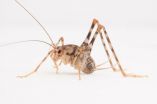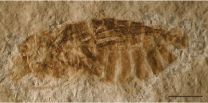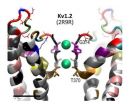(Press-News.org) This news release is available in Spanish.
Researchers at the University of Granada have found, through an experiment conducted on rats, that hyperproteic diets could be beneficial for bones, which would be of great use for groups with bone disease problems, such as the elderly or post-menopausic females.
Their research has also revealed that vegetal protein—in the case of the present study, soy protein—is preferable to animal protein (such as whey protein), since the former increased the level of calcium in bones by as much as seven per cent.
In an article published in the journal Food & Function, these researchers examined the effects of a normoproteic diet and of another hyperproteic one upon rat bones. They used a sample of 140 male Wistar rats, which was divided into four different subgroups, each of which was administered a different diet over the course of 12 weeks.
Two of these groups were fed a normoproteic diet (10% rich), half of them with soy protein, and the other half with whey protein; the other two groups ingested two different types of hyperproteic diets (45% rich) based, respectively, on soy and whey protein.
Better bone features
The results of this experiment demonstrated that rats fed with a hyperproteic diet maintained better bone properties than those which followed a normoproteic diet, in spite of the fact that they were affected by some acidity markers such as urea in plasma (46% higher) and urinary pH (8% more acid). These apparently negative side effects were neutred in those groups that consumed soy as a protein source, which reduced such acidity.
The group fed with soy protein presented besides a higher amount of total minerals, 7% more calcium in bones and a thicker diaphyseal cortical area, than those fed with the whey protein diet.
According to Virginia A. Aparicio Garcia Molina and Elena Nebot, researchers from the Physiology Department at the University of Granada and two of the authors of this study, "the impact that the type and the amount of protein which we consume have upon our health is a highly controversial topic within the scientific community, and there is no definitive agreement on certain aspects in this subject'
Hyperproteic diets are very frequent among athletes and persons who are on weight loss diets, but there is still no consensus on the effects that such diets have upon our organism.
Researchers warn that this is a study conducted upon rats, whose results must still be confirmed in humans. "We would recommend a case by case study supervised by professionals, and approach the subject taking into consideration the advantages and disadvantages presented by hyperproteic diets, besides each individual's personal features."
INFORMATION:
This research included the participation of researchers from the Physiology and Biostatistics Departments at the University of Granada, the Institute of Nutrition and Food Technology, as well as scientists from the Veterinary Medical School in Vienna (Austria)
The following video, produced by the Unity for Scientific Culture at the University of Granada, provides further details on this research: http://youtu.be/3fly8LAPjVM
MP3 audio can be downloaded here. The originals for the images are available here: http://sl.ugr.es/brutos1 http://sl.ugr.es/Brutos2
Study conducted on rats suggests that hyperproteic diets can be beneficial for bones
This research, conducted at the University of Granada, also reveals that soy protein supplements are better than those with whey, since they improve calcium content in bones by as much as 7 percent
2014-09-02
ELSE PRESS RELEASES FROM THIS DATE:
Over-the-counter pain reliever may restore immune function in old age
2014-09-02
New research involving mice suggests that the key to more youthful immune function might already be in your medicine cabinet. In a report published in the Journal of Leukocyte Biology scientists show that macrophages from the lungs of old mice had different responses to Mycobacterium tuberculosis than macrophages from young mice, but these changes were reversed by ibuprofen.
"Inflammation in old age can have significant consequences on immune function," said Joanne Turner, Ph.D., a researcher involved in the work from the Department of Microbial Infection and Immunity ...
Coffee increases prediabetes risk in susceptible young adults
2014-09-02
Barcelona, Spain – Tuesday 2 September 2014: Coffee increases the risk of prediabetes in young adults with hypertension who are slow caffeine metabolisers, according to results from the HARVEST study presented at ESC Congress today by Dr Lucio Mos from Italy. People who drank more than three cups of coffee per day doubled their risk of prediabetes.
Dr Mos said: "Lifestyle factors are very important for the prognosis of young people with hypertension. In a previous analysis of HARVEST (Hypertension and Ambulatory Recording VEnetia STudy) we found that coffee was a risk ...
The Lancet: European Society of Cardiology Congress 2014 media alert
2014-09-02
The Lancet is pleased to announce that the following papers will be published to coincide with presentation at the ESC Congress 2014, taking place in Barcelona, Spain, 30 August – 3 September 2014:
Ultrathin strut biodegradable polymer sirolimus-eluting stent versus durable polymer everolimus-eluting stent for percutaneous coronary revascularisation (BIOSCIENCE): a randomised, single-blind, non-inferiority trial, Windecker et al
Refinements in stent design affecting strut thickness, surface polymer, and drug release have improved clinical outcomes of drug-eluting stents. ...
War between bacteria and phages benefits humans
2014-09-02
BOSTON (September 2, 2014) — In the battle between our immune systems and cholera bacteria, humans may have an unknown ally in bacteria-killing viruses known as phages. In a new study, researchers from Tufts University, Massachusetts General Hospital, Partners In Health, Haiti's National Public Health Laboratory, and elsewhere, report that phages can force cholera bacteria to give up their virulence in order to survive. Importantly, the study — published in eLife — found that cholera's mutational escape from phage predation occurs during human infection.
First author ...
Migrating birds sprint in spring, but take things easy in autumn
2014-09-02
Passerine birds, also known as perching birds, that migrate by night tend to fly faster in spring than they do in autumn to reach their destinations. This seasonal difference in flight speed is especially noticeable among birds that only make short migratory flights, says researcher Cecilia Nilsson of Lund University in Sweden, in Springer's journal Behavioral Ecology and Sociobiology.
Nilsson, in a group led by professor Thomas Alerstam, used a tracking radar to measure over three years the speed by which birds flew over Falsterbo Peninsula, a bird migratory hot spot ...
Nano-forests to reveal secrets of cells
2014-09-02
Vertical nanowires could be used for detailed studies of what happens on the surface of cells. The findings are important for pharmaceuticals research, among other applications. A group of researchers from Lund University in Sweden have managed to make artificial cell membranes form across a large number of vertical nanowires, known as a 'nano-forest'.
All communication between the interior of a cell and its surroundings takes place through the cell membrane. The membrane is a surface layer that holds the cell together and that largely comprises lipids, built of fatty ...
Scientists find possible neurobiological basis for tradeoff between honesty, self-interest
2014-09-02
What's the price of your integrity? Tell the truth; everyone has a tipping point. We all want to be honest, but at some point, we'll lie if the benefit is great enough. Now, scientists have confirmed the area of the brain in which we make that decision.
The result was published online this week in Nature Neuroscience.
"We prefer to be honest, even if lying is beneficial," said Lusha Zhu, the study's lead author and a postdoctoral associate at the Virginia Tech Carilion Research Institute, where she works with Brooks King-Casas and Pearl Chiu, who are assistant professors ...
Researchers find Asian camel crickets now common in US homes
2014-09-02
With their long, spiky legs and their propensity for eating anything, including each other, camel crickets are the stuff of nightmares. And now research from North Carolina State University finds that non-native camel cricket species have spread into homes across the eastern United States.
"The good news is that camel crickets don't bite or pose any kind of threat to humans," says Dr. Mary Jane Epps, a postdoctoral researcher at NC State and lead author of a paper about the research.
The research stems from a chance encounter, when a cricket taxonomist found an invasive ...
Exceptionally well preserved insect fossils from the Rhône Valley
2014-09-02
In Bavaria, the Tithonian Konservat-Lagerstätte of lithographic limestone is well known as a result of numerous discoveries of emblematic fossils from that area (for example, Archaeopteryx). Now, for the first time, researchers have found fossil insects in the French equivalent of these outcrops - discoveries which include a new species representing the oldest known water treader.
Despite the abundance of fossils in the equivalent Bavarian outcrops, fewer fossils have been obtained from the Late Kimmeridgian equivalents of these rocks in the departments of Ain and Rhône ...
Surprising new role for calcium in sensing pain
2014-09-02
DURHAM, N.C. -- When you accidentally touch a hot oven, you rapidly pull your hand away. Although scientists know the basic neural circuits involved in sensing and responding to such painful stimuli, they are still sorting out the molecular players.
Duke researchers have made a surprising discovery about the role of a key molecule involved in pain in worms, and have built a structural model of the molecule. These discoveries, described Sept. 2 in Nature Communications, may help direct new strategies to treat pain in people.
In humans and other mammals, a family of ...
LAST 30 PRESS RELEASES:
Machine learning tool can predict serious transplant complications months earlier
Prevalence of over-the-counter and prescription medication use in the US
US child mental health care need, unmet needs, and difficulty accessing services
Incidental rotator cuff abnormalities on magnetic resonance imaging
Sensing local fibers in pancreatic tumors, cancer cells ‘choose’ to either grow or tolerate treatment
Barriers to mental health care leave many children behind, new data cautions
Cancer and inflammation: immunologic interplay, translational advances, and clinical strategies
Bioactive polyphenolic compounds and in vitro anti-degenerative property-based pharmacological propensities of some promising germplasms of Amaranthus hypochondriacus L.
AI-powered companionship: PolyU interfaculty scholar harnesses music and empathetic speech in robots to combat loneliness
Antarctica sits above Earth’s strongest “gravity hole.” Now we know how it got that way
Haircare products made with botanicals protects strands, adds shine
Enhanced pulmonary nodule detection and classification using artificial intelligence on LIDC-IDRI data
Using NBA, study finds that pay differences among top performers can erode cooperation
Korea University, Stanford University, and IESGA launch Water Sustainability Index to combat ESG greenwashing
Molecular glue discovery: large scale instead of lucky strike
Insulin resistance predictor highlights cancer connection
Explaining next-generation solar cells
Slippery ions create a smoother path to blue energy
Magnetic resonance imaging opens the door to better treatments for underdiagnosed atypical Parkinsonisms
National poll finds gaps in community preparedness for teen cardiac emergencies
One strategy to block both drug-resistant bacteria and influenza: new broad-spectrum infection prevention approach validated
Survey: 3 in 4 skip physical therapy homework, stunting progress
College students who spend hours on social media are more likely to be lonely – national US study
Evidence behind intermittent fasting for weight loss fails to match hype
How AI tools like DeepSeek are transforming emotional and mental health care of Chinese youth
Study finds link between sugary drinks and anxiety in young people
Scientists show how to predict world’s deadly scorpion hotspots
ASU researchers to lead AAAS panel on water insecurity in the United States
ASU professor Anne Stone to present at AAAS Conference in Phoenix on ancient origins of modern disease
Proposals for exploring viruses and skin as the next experimental quantum frontiers share US$30,000 science award
[Press-News.org] Study conducted on rats suggests that hyperproteic diets can be beneficial for bonesThis research, conducted at the University of Granada, also reveals that soy protein supplements are better than those with whey, since they improve calcium content in bones by as much as 7 percent







